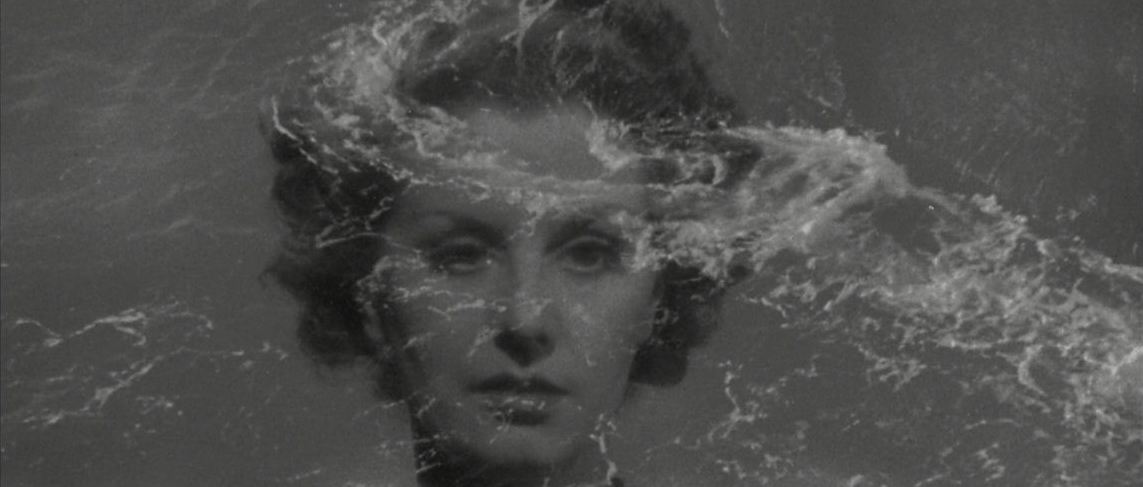
8 May – 22 May
“The Archers” – as Michael Powell (1905–1990) and Emeric Pressburger (1902–1988) called themselves – are amongst the greatest collaborators in the history of cinema. Their often romantic, sometimes disturbing films explore the power of vision and artistic creation, combining music, dance, painting, literature and photography with the most cinematic of imaginations. Aesthetically singular, their films melded a quintessential Englishness with a baroque, often dark European sensibility. Powell started his film career working for director Rex Ingram in the mid-1920s, before taking on the role of stills photographer for several Alfred Hitchcock productions. He learned his directorial craft in the 1930s while making over 20 “quota quickies”, before coming to critical attention with 1937’s The Edge of the World. Pressburger was a Hungarian Jewish émigré to Britain who came to prominence as a screenwriter in Germany in the early 1930s. The two were brought together by Alexander Korda to work on the atmospheric espionage tale The Spy in Black (1939) and would go on to complete 24 collaborations over a 33-year period. It can be argued that the run of films they made from the early 1940s to the early 1950s is one of the greatest in the history of the medium taking in such cherished works as The Life and Death of Colonel Blimp (1943), A Canterbury Tale (1944), I Know Where I’m Going! (1945), Black Narcissus (1947) and The Red Shoes (1948). This season includes three of these key films alongside three productions Powell worked on without Pressburger: The Edge of the World; the extraordinary The Thief of Bagdad (1940), co-directed by Ludwig Berger and Tim Whelan; and the new restoration of Powell’s brilliantly stylised filming of Béla Bartók’s Bluebeard’s Castle (1963) for West German TV.

7:00pm A CANTERBURY TALE
Michael Powell and Emeric Pressburger (1944) 124 mins – G
Alternating between an investigation into a series of mysterious glue throwing attacks and lyrical observations of the local community, Powell and Pressburger’s visionary update of Chaucer surveys the romantic values shared by contemporary and Medieval England, the local inhabitants and the foreigners stationed in and around Canterbury during World War II. Despite an initially lukewarm reception, this fugue-like film’s reputation has grown over time and it is now regarded as amongst the filmmakers’ greatest and most personal works. With Eric Portman, Dennis Price and Sheila Sim.
CTEQ ANNOTATION
A Canterbury Tale
by Tamara Tracz
9:20pm THE EDGE OF THE WORLD
Michael Powell (1937) 81 mins – PG
Powell’s first major film deals with the sadly inevitable evacuation of the desolate Scottish archipelago of St Kilda by its inhabitants. This strikingly original drama, noted for its rugged location scenery, everyday realism, partial recreation of a disappearing way of life and strong performances, combines Powell’s penchant for mysticism with a Flaherty-like documentary authenticity. Its significant success led to Powell’s fateful meeting with Emeric Pressburger. With John Laurie, Finlay Currie, Niall MacGinness and Powell himself.
Followed by Return to the Edge of the World Michael Powell (1978) 25 mins – PG. Powell’s last work is an evocative and bittersweet documentary detailing the return of the director and cast members to the windswept locations of his breakthrough earlier film, The Edge of the World.
CTEQ ANNOTATION
The Edge of the World
by Darragh O’Donoghue

7:00pm BLACK NARCISSUS
Michael Powell and Emeric Pressburger (1947) 101 mins – PG
Rumer Godden’s novel of an order of nuns trying to establish a remote Himalayan mission is transformed, in Powell and Pressburger’s fevered imagination, into a Technicolor masterpiece of heightened operatic intensity, repressed sexuality and cinematic audaciousness. Almost totally shot in the studio, this is one of cinema’s great synthetic achievements, featuring brilliantly atmospheric production design by Alfred Junge and breathtakingly expressive cinematography by Jack Cardiff, both of whom won Oscars for their contributions. With Deborah Kerr, David Farrar, Jean Simmons, Flora Robson, Sabu and the indelible Kathleen Byron as Sister Ruth.
CTEQ ANNOTATION
Black Narcissus
by Karli Lukas
8:55pm THE THIEF OF BAGDAD
Michael Powell, Ludwig Berger and Tim Whelan (1940) 106 mins – G
The caliph succumbs to the power of his wicked grand vizier (Conrad Veidt) before Abu (Sabu) acquires, from a bottle, the wishes of a mischievous genie (Rex Ingram). This truly marvellous blend of magic, action, music (by Miklós Rózsa), romance and the unbridled spirit of early cinema is one of the most popular and fondly remembered of all screen fantasies. The only film to truly capture, in brilliant Technicolor (shot by Georges Périnal), the overpowering atmosphere of the Arabian Nights, this multi-Oscar winning opus was a key international breakthrough for Powell and producer Alexander Korda.
CTEQ ANNOTATION
Seeing Colours: The Thief of Bagdad (1940)
by Alex Williams

7:00pm BLUEBEARD’S CASTLE
Michael Powell (1963) 63 mins – PG
After the backlash against Peeping Tom, Powell embarked on a fascinating late career that took in everything from Australian feature-films, series TV, children’s movies and advising for Scorsese and Coppola to this extraordinarily stylised adaptation of Béla Bartók’s almost unfilmable 1911 opera for West German TV. Featuring a libretto by film theorist and poet Béla Belázs, and boldly expressionist production design by Hein Heckroth (The Red Shoes) relying on semi-abstraction, psychodramatic sets and vivid, almost deranged colours, it stars Norman Foster in the murderous title role.
CTEQ ANNOTATION
Bluebeard’s Castle, or The Horror Chambers of Doctor Powell
by David Melville
8:15pm THE LIFE AND DEATH OF COLONEL BLIMP
Michael Powell and Emeric Pressburger (1943) 163 mins – G
Hated by Churchill and only revived in its full-length Technicolor glory in the 1970s, Powell and Pressburger’s beautifully rendered epic of male friendship transforms a satire of Britain’s military class in the first 40 years of the 20th century into an elegiac (if often comic) history of changing times and disappearing values. One of the key and most ambitious films produced during World War II, its exotic expressiveness was at odds with the realistic temper of its day. Featuring outstanding performances by Roger Livesey as the staunch, blustery colonel, Deborah Kerr as the three women in his life, and Anton Walbrook as his German best friend.
CTEQ ANNOTATION
Seventy Years Ago… The Return of The Life and Death of Colonel Blimp
by Ian Christie